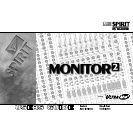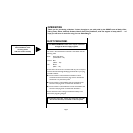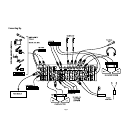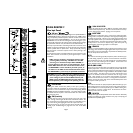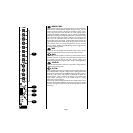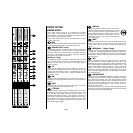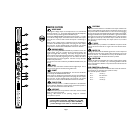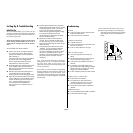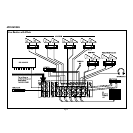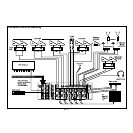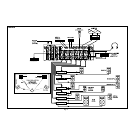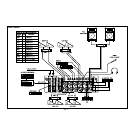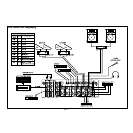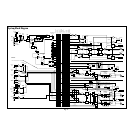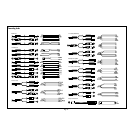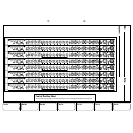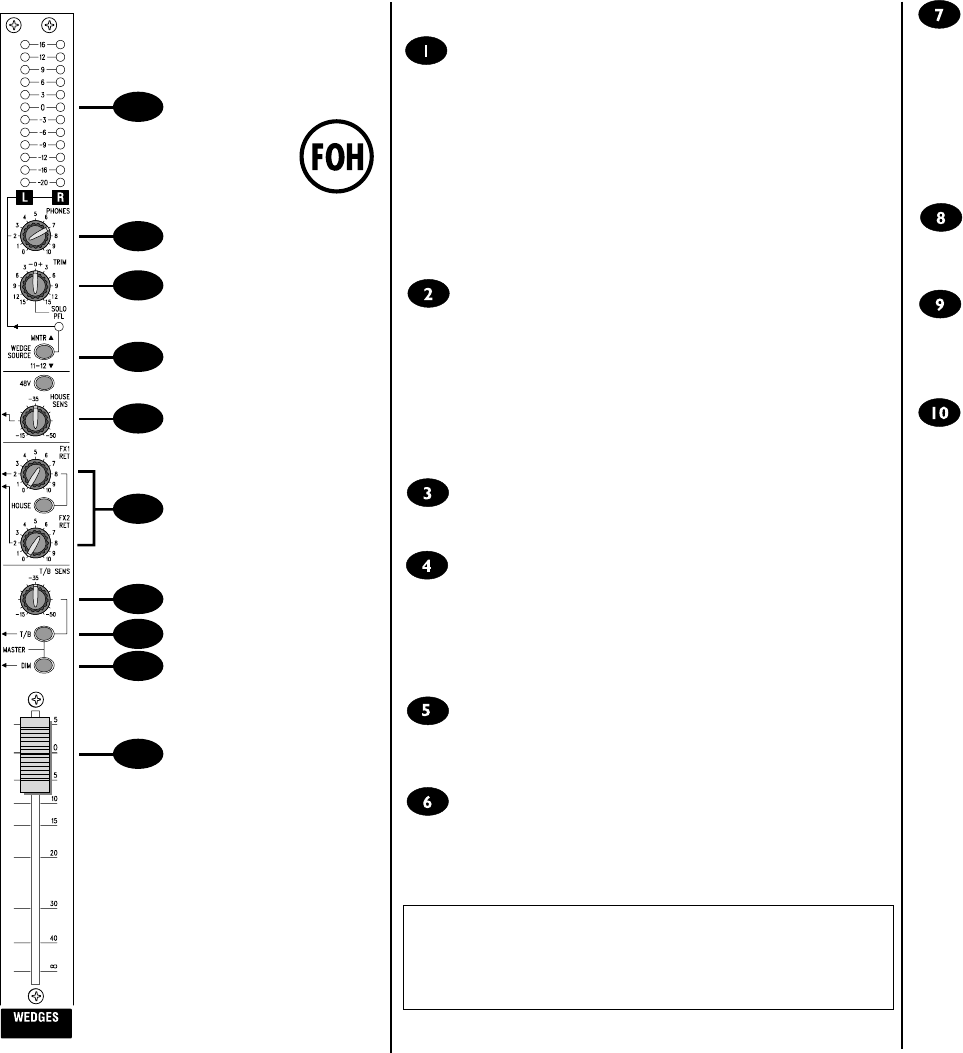
Page 7
MASTER SECTION
WEDGE SOURCE
The Engineers Wedge outputs are normally fed from a mix of the MNTR
feeds from outputs 1-12. The pre-fade wedge signal feeds the headphones
and meters and the post-fade signal feeds the XLR outputs.
Pressing the WEDGE SOURCE switch selects monitor outputs 11-12 as the
source for the wedge outputs, and would be used to monitor those outputs
when the mixer is used as a FOH console with outputs 1-10 submixing to
11-12.
When any PFL or SOLO switch is pressed the source for the Wedges is
switched to the PFL/SOLO signal without interrupting the other outputs
from the mixer, to allow individual signals to be monitored. The original
wedge source is restored when the PFL/SOLO switches are released.
BARGRAPH METERS
3-colour peak reading BARGRAPH METERS are provided to monitor the
wedge outputs, giving you a constant warning of excessive peaks in the
signal which might cause overloading. Aim to keep the signal within the
amber segments at peak levels for best performance. Similarly, if the output
level is too low and hardly registering at all on the meters, the level of
background noise may become significant. Take care to set up the input
levels for best performance.
The source for the meter is selected by the WEDGE SOURCE switch (see
above).
FADER
The 100mm fader controls the overall level of the wedges output. The 0
mark gives unity gain from the fader, leaving 5dB in hand.
PHONES
This control sets the level to the PHONES jack. The source for the Phones
is selected by the WEDGE SOURCE switch.
When any PFL or SOLO switch is pressed the source for the Headphones
is switched to the PFL/SOLO signal without interrupting the other outputs
from the mixer, to allow individual signals to be monitored. The original
phones source is restored when the PFL/SOLO switches are released.
SOLO/PFL TRIM
The TRIM control provides +/-15dB level adjustment of the SOLO/PFL
signal to allow for differences in operating levels. Note that the position of
this control does not affect the level to the meters.
HOUSE MICS
Two balanced XLR inputs are provided for House Mics, and the HOUSE
SENS control sets the input level.
Pressing +48V switches on the powering voltage for condenser
microphones if required.
ONLY connect condenser microphones with the 48V
powering OFF (switch UP), and ONLY turn the 48V
powering on or off with all output faders DOWN, to
prevent damage to the mixer or external devices.
4
1
5
6
2
7
8
9
10
3
FX RETURNS
Two balanced Stereo Returns are included for the outputs of effects units
and are made available for mixing directly to the Monitor outputs at a level
set by the FX1 RET or FX2 RET controls. If a mono source is used, plugging
into the Left jack only automatically feeds the signal to both Left and Right.
Pressing the HOUSE switch replaces the FX Return 1 signal with the House
Mics signal (at a level set by the HOUSE SENS control), to allow the House
Mics signal to be fed to any of the monitor outputs. Note that the House
Mics signal can be injected directly into outputs 9/10 and 11/12 without
using this facility.
T/B SENS
A balanced XLR input is provided for a local talkback microphone, and this
controls sets the level that this mic signal is fed to the selected monitor
outputs.
MASTER T/B
Pressing this switch routes the Talkback signal to ALL monitor outputs and
simultaneously dims the monitor signals to allow the engineers voice to be
heard over the mix. The Talkback level is set by the T/B SENS control.
Talkback is disabled when the Master DIM switch is pressed.
MASTER DIM
Pressing the DIM switch attenuates ALL monitor outputs and the wedges
output by 6dB as an immediate way of eliminating feedback while the
source of the problem is identified. The previous level is restored when the
switch is released.
LAMP CONNECTOR (not illustrated)
Two 4-pin XLR-type connectors are fitted at either end of the console for
the mounting of 12V gooseneck lamps (Littlite or similar).
The connector pinout is as follows:
Pin 1 - 12V AC (1)
Pin 2 - No connection
Pin 3 - 12V AC (1)
Pin 4 - 12V AC (2)



